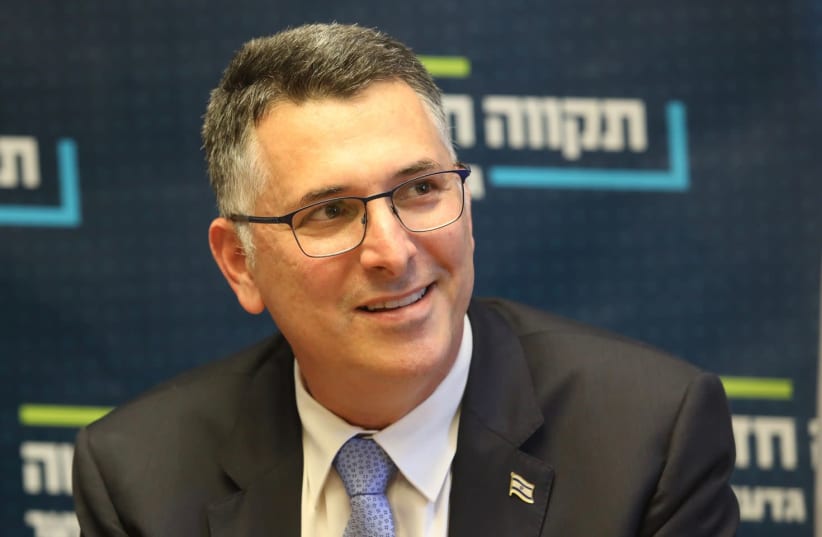Justice Minister Gideon Sa’ar on Tuesday told top ministry officials at the Jerusalem headquarters in his opening ceremony that, “I came to fix and not to destroy.”
Distinguishing himself from former justice minister Amir Ohana, who was associated with trying to weaken the ministry to help Benjamin Netanyahu with his public corruption trial, Sa’ar indicated a heartfelt appreciation to the ministry for its work.
“I have come home to return to this building, with the greatness and splendor it deserves, to restore the rule of law for a proper functioning and modern country,” he said.
He also praised outgoing justice minister Benny Gantz for defending the rule of law from forces trying to tamper with the legal establishment’s independence.
At the same time, it was clear that Sa’ar meant business in terms of making ideological changes to the ministry which are not related to Netanyahu.
When Gantz spoke, he referred to Sa’ar’s much-discussed plan to split the role of attorney-general into two separate roles: one chief prosecutor and one chief legal adviser, giving some warnings.
Gantz said that he personally would support the incoming justice minister on the issue if the purpose was “dividing the roles” and not “destroying” the authority of the executive branch’s chief legal official.
Further, he recommended that Sa’ar advise with the top minds in the Justice Ministry before he arrives at the right formula for his reforms.
While Sa’ar promised he would advise and try to seek consensus, he made it clear he would act to make reforms he believed in even without consensus.
“I am not here just to reign, but to get things done,” said Sa'ar.
On another front, Sa’ar warned that the prosecution will need to get both faster in closing and completing cases as well as to reduce cases for minor crimes.
Emotionally quoting former prime minister Menachem Begin, he highlighted the concept that the country’s citizens are not the criminal enemy, and should not be treated as such.
Rather, he said that criminal indictments should be reserved for serious crimes and then should be dealt with promptly so as not to leave even a criminal in a state of uncertainty for any longer than necessary.
Moreover, he said that if a case took too long, it was inherently unjust even if the technical standards of the law were met in filing the case.
Attorney-General Avichai Mandelblit said to Gantz: “We have acted to maintain the rule of law during a difficult time period... You stood firm like a wall to prevent interfering with the role of the attorney-general.”
Next, Mandelblit said that Sa’ar knows well that those working at the Justice Ministry are there “for the good of the state” and implored him to end the instability the ministry has faced by making proper and permanent appointments in many unfilled key posts.
The Netanyahu government had blocked appointing a permanent state attorney since it wanted a candidate more friendly to the former prime minister than the candidates suggested by Gantz.
Mandelblit concluded that he and Sa’ar may have ideological differences, but that if they pursued these “with proper intentions” even such differences would “promote peace in the world.”
Meanwhile, incoming Intelligence Minister Elazar Stern also held a hand-off ceremony on Monday with outgoing Intelligence Minister Eli Cohen.
Stern thanked Cohen and the office's staff for its work, while saying he would deepen its commitment to improving Israel's national security as well as making some contributions in the diplomatic and social realms as well.
